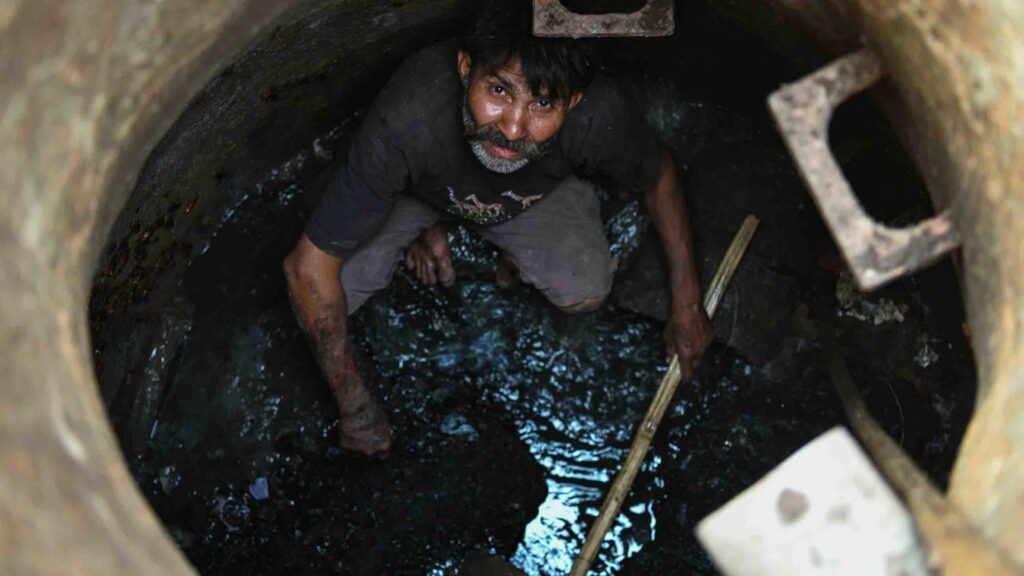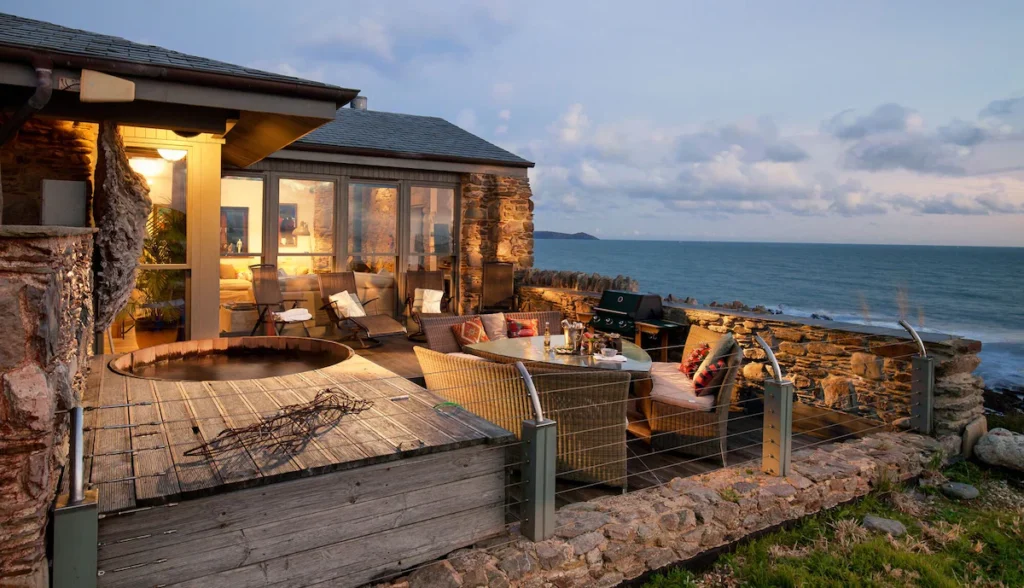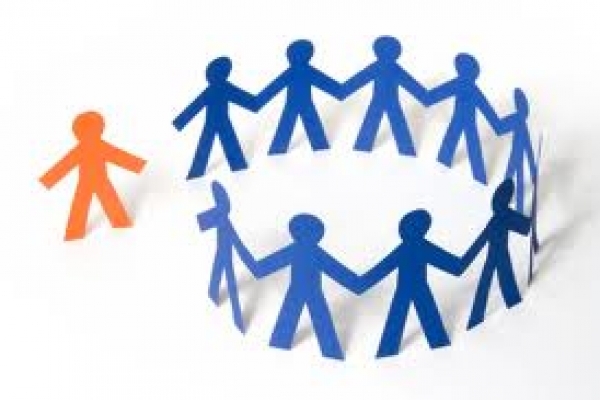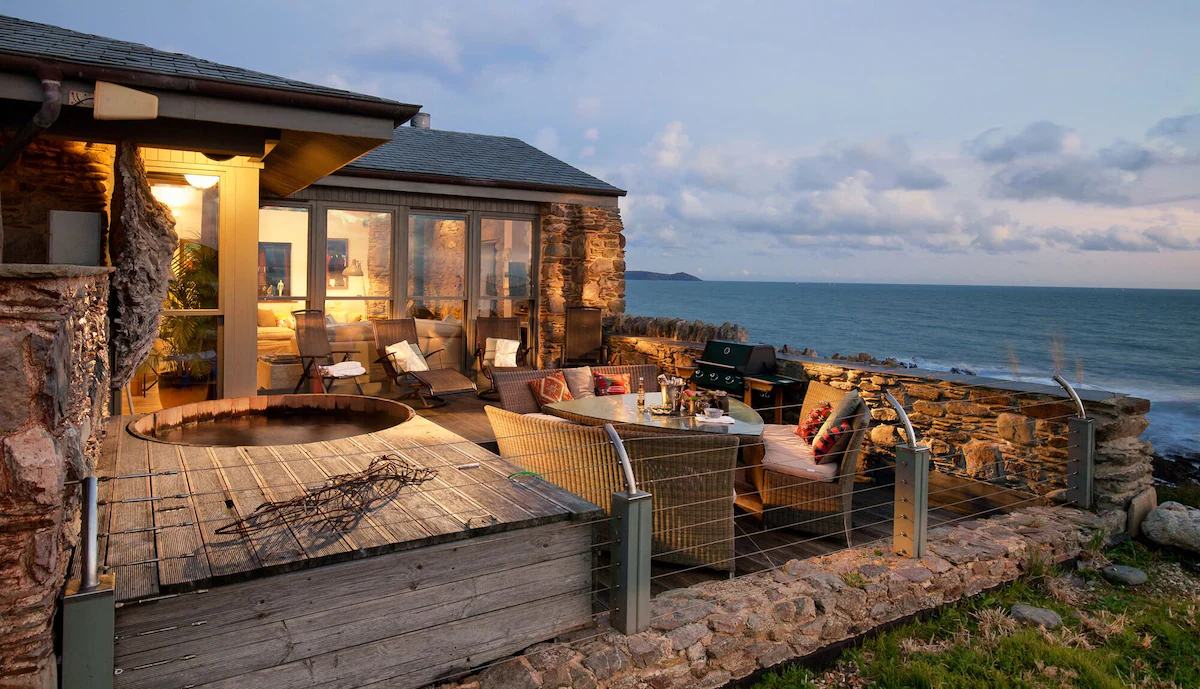Who gets the beach house? (And other tough questions about an Open Access Economy)
I was recently accosted on Twitter by someone who apparently found the whole Open Access Economy theory quite funny and set about shredding the idea in a barrage of questions. These are the supposedly tough questions of a post-money society, and ones that I’ve answered many times on various different platforms. However, this time, I figured I would take the opportunity to answer them in a blog post so it’s more generally accessible, because—as I hope to show—when you truly understand what an Open Access Economy means, these are actually not tough questions at all.
But before I start, one feature that is going to be common to all these answers—and it can’t be stressed enough—is this: When we are talking about an Open Access Economy, we’re talking about a methodology that’s been willfully adopted by people, not some externally or politically imposed ‘system’. So it’s important to remember that any coercion or sacrifice required to make such a society work can only be willfully self-imposed. The real key to selling this idea is showing how people can willfully become more self-sacrificing than they are today.
Also, as a precursor to this I should add that I believe charges against historical examples of communism (a typical critique) are mostly legitimate; they do devolve into highly centralised dictatorships, cause a lot of grief and eventually implode. But here’s the rub: The exact same thing can be said of capitalism. It’s entirely oligarchical, is decimating our living and social systems through over-extraction, waste and inequality, and, though it’s not quite there yet, is well on course to implode under its own implausible pursuit of growth to sustain itself.
The point is, as I’ve outlined before, that capitalism, communism and socialism all share a common feature: Trade. It’s beyond proven now that trade leads to wealth concentration and oligarchy. Everywhere trade goes, capitalism and oligarchy follow. There are no exceptions to this rule. So it’s vitally important that we don’t confuse OAE with communism or socialism, because OAE is a post-trade theory. In short, we’ve never done this before at scale, so any comparisons to other historical models are distracting and irrelevant.
So, I’m going to paraphrase these ‘tough’ questions and answer them one at a time.
1. What if people just want to take and not give?

It’s usually a good place to start when answering these types of question to ask: how does this work in current society? In current society, you won’t last long if you don’t either work for a living or take to the wild (unless you have the good fortune to be born rich). So it’s fair to say that in current society, you will suffer by not contributing something.
In an Open Access Economy, the common understanding would simply be if everyone pitches in a little bit, everyone gets what they need. This would form part of the social contract that would be the culturally-accepted norm—just as trade and self-interest are part of our culturally-accepted norm today.
The key point here is that the ‘everyone pitching in’ part, spread across society would be a potentially trivial sacrifice for people to make. Though it would vary between different people and regional challenges, it’s not hard to imagine that 3-4 hours work per week would be more than enough to accommodate, food and clothe everybody if efficiently organised. The precedent for this already exists in volunteer and charitable services which exist in all developed countries. Relieving people of the daily grind of 40-hour weeks would free up more than enough time for most people to readily commit to help out in their community – especially when that is also the cultural expectation.
Having said that, it’s not a stretch to imagine that, even in a society operating on this new social contract, people would invariably develop a low opinion of people who didn’t appear to be doing their part, and those people would inevitably feel that in the form of some lack, whether material or social. However it’s also not a stretch to imagine that such cases of ‘dropping out’ would be much, much less in a society which had nurture, cooperation and respect among its core foundational values.
In current society, dropping out from the system is compounded by a feedback loop: The less money you have, the less money you are likely to have. This erodes self-confidence and impedes your ability to have healthy interactions with other people, which, again, diminishes your ability to make money. So it’s very easy to slide through the system—even just through bad luck.
Obviously an open access society doesn’t have the money issue, so you’re already in a strong, stable material position from the beginning. Also, it’s well documented that participation in society makes us feel better about ourselves—an integral part of open access society that everyone will culturally immersed in. This would undoubtedly ensure a higher degree of social acceptance across the population.
In current society, participating via a job to make money doesn’t have the same feel-good effect as just participating in order to help, as most feel that a job is onerous and merely a way to meet external financial pressures. The incentive to participate in an open access society would be the inevitable social bonding and our innately craven desire to be productive.
2. Who works in the sewers or in the factories?

Again, let’s start with how it is currently. Today, these are considered menial or low-pad jobs, so it stands to reason that the only ones who would do them are poorer people. In other words, they are the working class exploited by the rich to maintain their lifestyles. Yet the irony here is that it is these working poor who are doing the essential work of society while the rich are doing mostly non-essential work. If capitalism truly were the best system, wouldn’t those wage classes be reversed?
So, rather than capitalism being efficient, it is a paid slave system. It requires coercion and misery to function, and any efficiency is only the perceived efficiency from its minority beneficiaries, not everyone—and certainly not the environment.
In an Open Access Economy, because every service is volunteered, we would naturally become more ruthless about what really needs to be done, and would automatically seek out the most efficient ways of doing it. So, sewer working would be important, and stockbroking would be forgotten about.
So who would do that job? I don’t know, but here’s some suggestions:
1. Unpleasant jobs would be rotated on a volunteer basis among those who are able to do it;
2. We could perfect machines (without cost constraints) to do it;
3. Surprising as this may seem, it’s likely that there would be willing and able volunteers who would enjoy the job. People do wilfully choose strange jobs even today when they could just as easily choose another (eg. I couldn’t imagine anyone wanting to be a dentist, but apparently millions of people do);
4. Finally, as an essential service to society, working in a sewer or factory could and should be a prestigious job in ways that we can’t fully envision today where we only equate money, power and exploitation with success and prestige. That cultural idolatry of powerful people needs to be replaced with respect for those who bring the most rather than those who take the most. Sewer workers and cleaners ought to be the heroes of society, in my opinion.
3. Who gets to live in the beach house?

Again, how is it today? Simple – he who has the most money gets the house. That’s of course irrespective of how he/she earned that money. They could equally be an oil baron or a criminal, we don’t care. So, today the one who potentially exploits and extracts the most wins the prize. Does that really sound like the best way?
So, how would it be in an open access society. Well, who knows, but against a backdrop of our new inclusive social contract, one could easily speculate some possibilities:
1. A lottery;
2. First come, first served (who can argue with that system?);
3. Timeshare – everyone gets to live there for a time;
4. Some form of social reputation system (eg. HonorPay) that recognises and favours those who give the most to society.
4. What if a sizeable minority don’t want to participate?

This is a question with two conflicting answers. The first is simple; because an OAE is a 100% participatory society, anyone who doesn’t want to participate would obviously not participate and would be excluded. So, whatever percentage of greater society wanted to operate an OAE would operate that way, whether they are 90% or just 2% – the obvious caveat being that the more people participate, the more skills and resources are available within that group, thus making it more effective. (However it’s not inconceivable that a smaller OAE group could find ways to trade with the ‘outside’ to maintain themselves)
That’s the easy answer. The second is more problematic, but it’s nothing to do with OAE and more to do with the current behaviour models of those would-be ‘outsiders’. History has shown us in vivid detail how simple, peaceful tribes are routinely brutalised and conquered by foreign weapon-wielding overbears. To the point that it seems like every peaceful society (especially ones with precious resources) are literally sitting ducks to outside aggressors.
Obviously the best way to guard against this is that such societies are sufficiently large that the outsiders are few and the society works so well that protest is basically nonexistent. But for smaller communities it’s difficult to say, except to note that modern humans are nothing like so brutish as their crusading forebears, so it’s probable that a well-run society—even if small—would be afforded respect and protection from the outside—in much the same way as the Amish Community is respected today.
In my novel F-Day, I proposed a hypothetical international treaty of protection for countries who adopted an open access economy. If such an idea were widespread, this would seem like a reasonable political approach to respect both types of society just as we generally respect national boundaries today.
I hope this offers some clarity to the ideas of an Open Access Economy. But, even though I have given this plenty of thought, I wouldn’t dare presume to say that these are definitive or prescriptive. The crucial point to remember is that almost all of what we believe about today’s society just doesn’t map onto how an inclusive, cooperative society such as this would function.
When people’s will and desires are in the right place, any way they can reimagine society will work in the best interests of all. Such a society will only ever be successfully adopted when people understand why it’s better and why it’s necessary for the common good. The intention is to replace coercion with understanding; monetary value with social and environmental value; trade with trust.
Can we do it? I don’t know.
But I definitely think we should try.






I was thinking about the concept of no money society the other day whilst driving my truck for Royal mail. It is I believe the answer to the world problems. no more war or famine. No more brutalising people for precious metals and stones. The idea that we would rid the world of banks, bankers and capitalism makes me smile. The idea that everything you need in life, for example, food, shelter, warmth, communication is free, would change this world for the better. The idea that the poorest countries in the world would have food, shelter and warmth makes me joyous. I would love to discuss this with you and maybe help in some small way towards a money free society